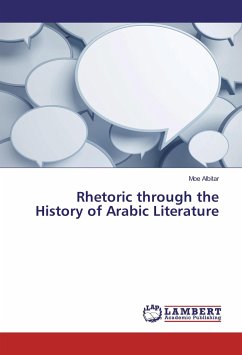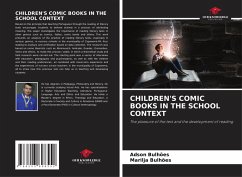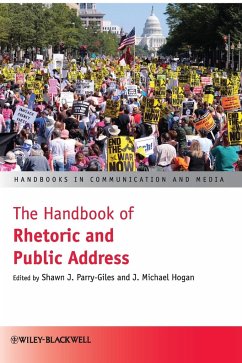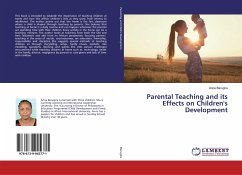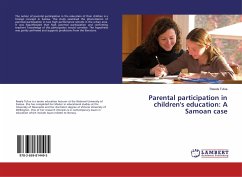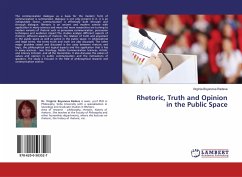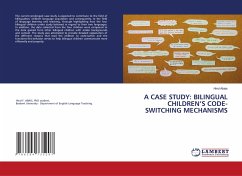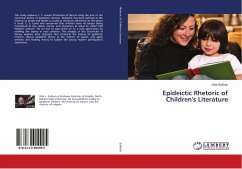
Epideictic Rhetoric of Children's Literature
Versandkostenfrei!
Versandfertig in 6-10 Tagen
58,99 €
inkl. MwSt.

PAYBACK Punkte
29 °P sammeln!
This study explores C. S. Lewis's Chronicles of Narnia using the lens of the rhetorical theory of epideictic rhetoric. Epideictic has been defined as the rhetoric of praise and blame; it is said to reinforce adherence to the values it lauds. C. S. Lewis was concerned that children were no longer being introduced to the values, stories, and characters of what he called "Old Western Culture". He set out to pass them on to a new generation by retelling the stories in new contexts. The analysis of the Chronicles of Narnia appears after chapters that chronicle the history of epideictic rhetoric, di...
This study explores C. S. Lewis's Chronicles of Narnia using the lens of the rhetorical theory of epideictic rhetoric. Epideictic has been defined as the rhetoric of praise and blame; it is said to reinforce adherence to the values it lauds. C. S. Lewis was concerned that children were no longer being introduced to the values, stories, and characters of what he called "Old Western Culture". He set out to pass them on to a new generation by retelling the stories in new contexts. The analysis of the Chronicles of Narnia appears after chapters that chronicle the history of epideictic rhetoric, discuss epideictic theory as the rhetoric of assent, and apply semiotic and reading theory to explain the young reader's participatory experience.




